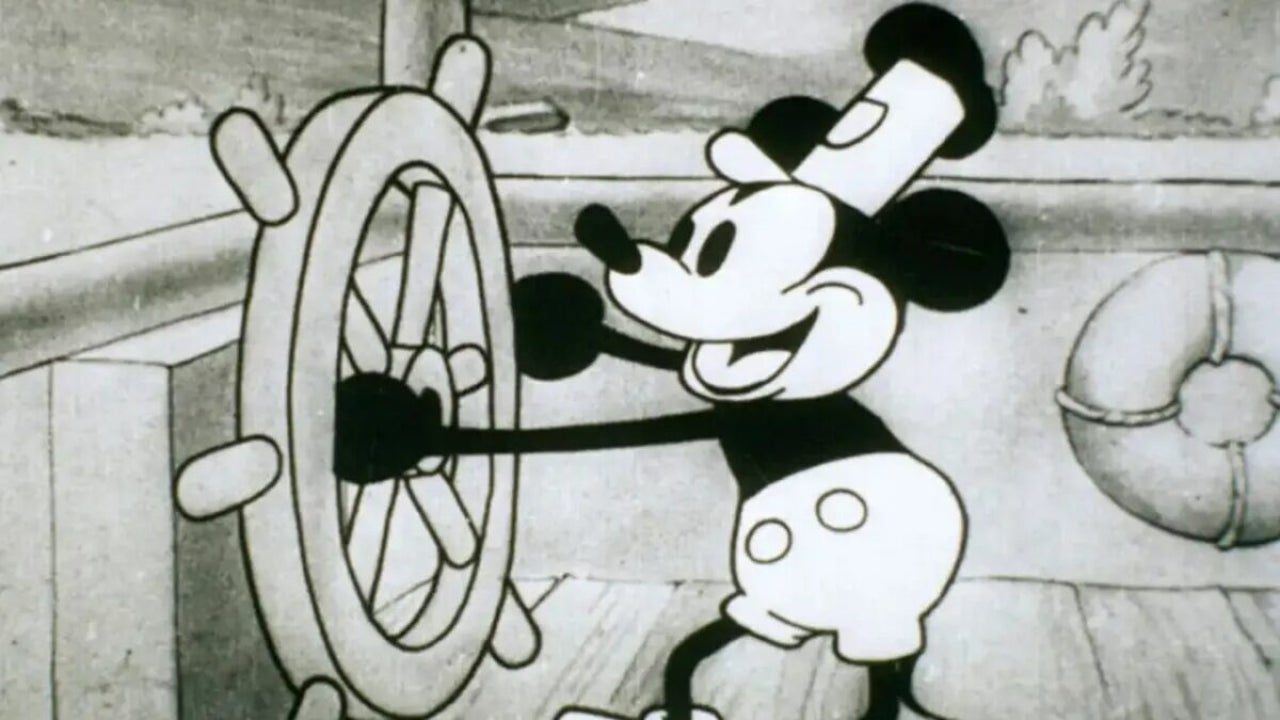News
The soap opera of Mickey Mouse’s copyright is far from over.
It is true that Mickey Mouse's steamboat has turned 96 years old, but there is much more to be done.

- January 7, 2024
- Updated: March 7, 2024 at 1:19 PM
Yes, Steamboat Willie – as the famous short film of Mickey Mouse sailing on a black and white boat is called – has entered the American public domain, but navigating the multiple nuances of copyright law can be more difficult than it seems.
At the beginning of this week, Disney’s film Steamboat Willie entered the public domain after almost a century, and so did its star Mickey Mouse.
It was a turning point for one of the most emblematic and rigorously protected pieces of intellectual property of the 20th century, and it was celebrated with an explosion of irreverent reinterpretations of Mickey, including at least two movie trailers, a horror game, etc.
Even the original cartoon was uploaded in its entirety to platforms like YouTube, allowing anyone to watch it for free. Something that Disney did not take kindly to.
An intellectual property law that is difficult to interpret
The end of intellectual property has been marked by a confusing series of moderation decisions by Disney, where no one knows who is right and who is not.
In the early days of January, it seems that Disney was still filing lawsuits to block the video on YouTube in some international markets. Mashable reported that a remix had been demonetized along with the restriction in those markets.
And illustrator Jef Caine posted on TeePublic a withdrawal notice he had received for a stylized Mickey Mouse t-shirt with the slogan “No Man Owns My Destiny”.
It is still unclear whether each of these demands was a reasoned decision, an excess of caution, or a simple coincidence. But the fact that they appear is not surprising.
The strong enforcement of copyright has shaped the boundaries and culture of the Internet. It is ill-prepared for a world where a large number of people are pushing the limits of a nuanced legal framework, and as pop culture becomes public property, the situation can become more complex.
What can we clearly take from all this mess
In a research work carried out by The Verge, they explain that there are some possible obvious explanations for the takedowns, since the previous examples touch on gray areas where restrictions could still apply.
The first is that the copyright situation of Steamboat Willie remains potentially more complicated outside the US, especially in Europe, which is where YouTube seems to be restricting access.
The second is that Disney still holds a trademark on Mickey, so – as explained by Duke Law School professor Jennifer Jenkins with a handy mouse-shaped diagram – they can argue that certain products may mislead people into believing that they have been created or endorsed by Disney.

The third one is that Disney still holds the copyright for later iterations of the character, who appeared in Steamboat Willie without the features that are now standard, such as the white gloves or (being a black and white film) the bright red shorts.
Both features were included in the original design of Caine’s shirt and notably not in a reworked version that is still available.
But ambiguity doesn’t entirely favor Disney. Jenkins points out that “not all features of later iterations of Mickey are susceptible to individual copyright protection,” including “merely trivial” updates or those that use obvious stock elements.
Even Techdirt points out that the European policy of “shorter term rule” for international copyright can push Mickey into the public domain there.
In addition to the public domain freedoms, the US fair use law allows for parodies and commentary on a copyrighted work, so some of these explicitly subversive takes on Mickey could have been legal even before this week.
It is difficult to know for sure, because fair use is not a simple flowchart of hard and fast rules, but rather requires a case-by-case analysis weighing several factors. Relying on the public domain is a much safer bet.
Content moderation at a large scale, in an Internet dominated by a handful of huge and powerful platforms, hides all this complexity. Although in favor of YouTube and other platforms, you can find a lot of Steamboat Willie content right now.
Internet moderation is an impersonal, multi-level, and often automated process, which often does not provide recipients with much information about what they have done wrong. Given the enormous volume of content, false positives are common. Sometimes, companies do not update their databases when moderators declare that a post does not violate the rules.
In theory, platforms are intermediaries that transmit copyright notifications, and people are free to file a counterclaim if they believe there is an error. But the balance of power is not on the users’ side.
Now that world is becoming a clear reality, and users are taking advantage of its opportunities. The only certain thing is that on Disney+ you have all the Mickey Mouse content ever published.
Journalist specialized in technology, entertainment and video games. Writing about what I'm passionate about (gadgets, games and movies) allows me to stay sane and wake up with a smile on my face when the alarm clock goes off. PS: this is not true 100% of the time.
Latest from Chema Carvajal Sarabia
- MrBeats releases the first teaser of his Beast Games contest, the show surrounded by complaints and lawsuits from Prime Video
- Ubisoft games are being blocked on PC and it’s Windows 11’s fault
- This is how Samsung laughs at Apple for its lack of innovation: the tradition returns for Christmas in the form of an advertisement
- While the second season of Arcane is incredible, we have bad news from Netflix
You may also like

Adobe Liquid Model Is Here to Wow You—Are You Ready?
Read more

Unlock New Possibilities in Performance Marketing with Adobe GenStudio
Read more

Cyber Monday VS. Black Friday Stats: Which Sales Day Dominates?
Read more

The Role of Avast Free Antivirus in Safe Remote Working
Read more

Your Black Friday Deal Could Be a Trap—Here’s Why
Read more

Hitman says goodbye to Conor McGregor: the game will remove all content related to the fighter
Read more